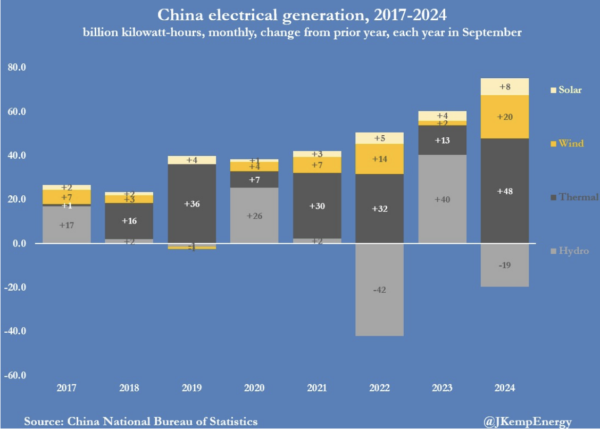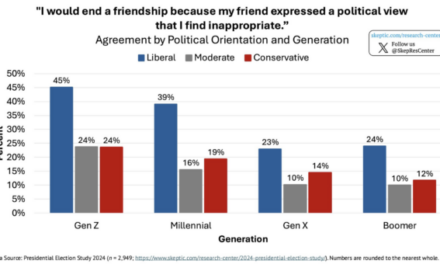We support our Publishers and Content Creators. You can view this story on their website by CLICKING HERE.
Most mainstream news stories about energy are written by ignorant and/or energy-illiterate journalists, who tend to be mere stenographers for the “green energy transition” apparatchiks in government and the environmental community. One notable exception is Bloomberg’s energy reporter, Javier Blas. It is worth following him on Twitter/X if you don’t have a Bloomberg subscription.
His latest piece of note is “The Energy Transition Is Powered By — Wait for It — Coal.” He lays out several truth bombs:
As demand for power goes up faster than renewables can supply, the world is turning to a time-tested source to produce it: coal. . . One barely hears about this in glossy descriptions of the energy transition. . .
Last week, the International Energy Agency published its annual World Energy Outlook, a comprehensive review of the likely paths that supply and demand for fossil fuels and renewable sources of energy would follow up to 2050. Buried in the 398-page report was a warning: “The outlook for coal has been revised upwards particularly for the coming decade, principally as a result of updated electricity demand projections, notably from China and India.”
It wasn’t a small revision: Coal consumption in 2030 is now estimated 6% higher than only a year ago. That may sound small, but it amounts to adding the equivalent of the consumption of Japan, the world’s fourth-largest coal burner. By 2030, the IEA now believes coal consumption will remain higher than it was back in 2010.
Coal is needed because power use is accelerating faster than what renewable sources can provide. It’s also dependable: It doesn’t rely on weather conditions like hydropower, wind and solar do. Other than coal, only nuclear power plants and gas-fired stations can provide electricity around the clock. . .
One notable statistic: Two-thirds of the total increase in energy demand in 2023 was met by fossil fuels, according to the IEA.
Blas point to China. How’s China going in its decarbonization? Not too well.
Blas notes:
Under former US climate envoy John Kerry, America reached a sort of détente with China about the energy transition. The unwritten deal involved China giving up coal over time. With hindsight, it feels like Beijing played Kerry, who was desperate for a deal at the COP26 climate summit in 2021 in Glasgow — the first gathering for the Biden administration, when the White House wanted to burnish its green credentials after Trump. [Emphasis added.]
China wouldn’t be the first adversary nation to have played Kerry, who is always desperate for a deal.

 Conservative
Conservative  Search
Search Trending
Trending Current News
Current News 





